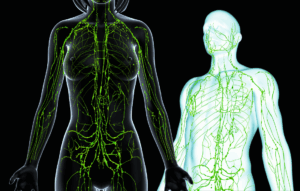Hey everyone, it’s June, and that means it’s Men’s Mental Health Awareness Month. This is a crucial time for us to focus on the unique mental health challenges that men face and the importance of addressing these issues head-on. In today’s fast-paced, high-pressure world, men are often expected to be stoic and resilient, but this cultural norm can lead to silence and suffering. It’s time for men to rise to their healthiest and most vital selves, embracing holistic health and wellness practices to combat the struggles that come our way.
Why Men’s Mental Health Matters
Let’s start with why men’s mental health is so important. Mental health issues affect millions of men worldwide, yet they often go unrecognized and untreated. According to the American Psychological Association, men are less likely than women to seek help for mental health issues, often due to societal expectations and stigma. This reluctance to seek help can have severe consequences, including higher rates of suicide, substance abuse, and other harmful behaviors.
It’s time we break down the barriers preventing men from seeking help. By raising awareness and encouraging open conversations about mental health, we can create a supportive environment where men feel comfortable reaching out for help.
The Dire Need for Men to Rise Up
In today’s world, men are facing a variety of challenges that can take a toll on their mental health. From work pressures and financial stress to relationship issues and societal expectations, it’s easy to feel overwhelmed. But now, more than ever, it’s crucial for men to rise up and take control of their mental and physical health.
Breaking the Stigma
One of the biggest obstacles to men’s mental health is the stigma surrounding it. Many men feel that admitting they need help is a sign of weakness, but this couldn’t be further from the truth. Seeking help is a sign of strength and courage. It’s about taking control of your life and doing what’s necessary to be your best self.
Embracing Vulnerability
Another important aspect of rising up is embracing vulnerability. It’s okay to admit that you’re struggling. Opening up to friends, family, or a mental health professional can provide the support you need to navigate through tough times. Vulnerability isn’t a weakness; it’s a vital part of being human.
The Rough Terrain of Modern Society
Modern society presents a particularly challenging environment for men. Cultural norms and expectations can tear men down in several ways, making it even more important to address mental health proactively.
Men are often taught from a young age to suppress their feelings and “man up.” This expectation can lead to emotional isolation and difficulty in expressing vulnerability. The pressure to always appear strong and in control can prevent men from seeking help and sharing their struggles, exacerbating mental health issues.
The Evolving Role of Men in Relationships
In some circles, men are increasingly viewed as “useless” or less valuable, particularly in the wake of evolving gender roles and societal changes. While feminism originally aimed to promote equality, there are instances where the dialogue can make men feel marginalized or undervalued. This perception can be detrimental to men’s self-esteem and mental well-being, leading to feelings of inadequacy and frustration.
The modern dating and relationship landscape can be another source of stress. With the rise of cheating culture and shifting dynamics in relationships, men often struggle with trust and emotional stability. Society’s portrayal of men as dispensable in relationships only adds to this burden, making it harder for men to feel valued and secure.
While feminism once sought to achieve gender equality, what it has become today can sometimes leave men feeling like their issues are meaningless and not cared about. Men might struggle with their place in a rapidly changing societal landscape where traditional roles are being thrown out the window. This confusion and struggle for identity can contribute to mental health challenges. There is a growing narrative that women don’t need men, focusing solely on career advancement at the expense of family and personal relationships. This can leave men feeling isolated and unappreciated, further impacting their mental health.
The Crucial Role of Testosterone in Men’s Mental Health and Well-Being
Testosterone is often referred to as the “male hormone,” but its importance goes far beyond its role in male reproductive health. It plays a critical part in overall well-being, impacting everything from physical health to mental clarity and emotional stability. Unfortunately, modern lifestyles and environmental factors are contributing to declining testosterone levels in men, which can have significant repercussions on their health.
Understanding Testosterone
Testosterone is a hormone primarily produced in the testicles. It is essential for the development of male growth and masculine characteristics. During puberty, testosterone helps boys develop male features like body and facial hair, deeper voice, and muscle strength. However, testosterone continues to be important throughout a man’s life, influencing bone density, fat distribution, muscle mass, red blood cell production, and sex drive.
The Impact on Mental Health
Testosterone is crucial for mental health. It affects mood, cognitive function, and overall emotional well-being. Low testosterone levels have been linked to various mental health issues, including depression, anxiety, and irritability. Men with low testosterone often report feeling fatigued, less motivated, and less confident.
- Mood Regulation: Testosterone plays a role in regulating mood. Men with low testosterone levels often experience mood swings, depression, and a general sense of dissatisfaction.
- Cognitive Function: Testosterone influences cognitive abilities, including memory and concentration. Declining levels can lead to difficulties in focusing and retaining information.
- Emotional Stability: Stable testosterone levels are associated with emotional resilience. Men with low levels may find it harder to cope with stress and emotional challenges.
Declining Testosterone Levels: A Growing Concern
Research indicates that testosterone levels in men have been steadily declining over the past few decades. A study published in the Journal of Clinical Endocrinology & Metabolism found that average testosterone levels in American men have dropped significantly since the 1980s, even when controlling for age and other health factors. The reasons for this decline are multifaceted and include lifestyle changes, environmental toxins, and increased stress levels.
- Environmental Factors: Exposure to endocrine-disrupting chemicals found in plastics, personal care products, and even the food supply can interfere with hormone production. Studies have shown that these chemicals can reduce testosterone levels and affect sperm quality.
- Lifestyle Choices: Sedentary lifestyles, poor diet, and lack of exercise contribute to declining testosterone levels. Obesity, in particular, is strongly associated with low testosterone.
- Stress: Chronic stress elevates cortisol levels, which can suppress testosterone production. In today’s high-pressure world, constant stress is a common issue for many men.
The Impact on Sperm Count
In addition to declining testosterone levels, sperm counts have also been decreasing. A comprehensive meta-analysis published in Human Reproduction Update reviewed data from 1973 to 2011 and found that sperm counts in men from Western countries had dropped by over 50% during this period. This decline in sperm count is alarming and has significant implications for male fertility and overall health.
The Impact of Unhealthy Habits on Testosterone and Mental Health
Testosterone is a key hormone for men’s mental health and overall vitality. It influences mood, energy levels, and cognitive function. Unfortunately, many common habits are detrimental to testosterone levels and, by extension, men’s mental health.
The Dangers of Alcohol, Vaping, and Pornography
- Alcohol: Contrary to popular belief, beer is not “manly.” In fact, it’s estrogenic and can decrease your manhood. Regular consumption of alcohol, especially beer, can lower testosterone levels and negatively impact mental health. A study published in the Journal of Clinical Endocrinology & Metabolism found that chronic alcohol consumption can lead to reduced testosterone levels.
- Vaping: Vapes are known to make your testicles smaller and decrease sperm count, affecting not just reproductive health but also testosterone levels and overall vitality. Many studies found that nicotine exposure through e-cigarettes can negatively affect sperm count, motility, and overall reproductive health, leading to a decrease in testosterone levels.
- Pornography: Consuming pornography can disrupt dopamine and brain chemistry, leading to a reduction in motivation, and pleasure from everyday activities, and even contributing to depression. Studies have shown that consumption of pornography can lead to a decrease in testosterone levels and other negative mental health outcomes.
Men must learn to rise above these detrimental habits and step into the men they were born to be. This isn’t just about quitting bad habits; it’s about reclaiming your health, vitality, and mental well-being. This is a call to all men to step up and for those around them to support them in becoming who they were born to be.
Strong Men Create Good Times: Why We Must Rise for a Better World
You’ve probably heard the quote, “Hard times create strong men. Strong men create good times. Good times create weak men. And weak men create hard times.” This cyclical nature of society reminds us that our actions today shape the world of tomorrow. In times of challenge and adversity, each one of us must rise up and become the strong men needed to create good times and a better world.
Being a “strong man” doesn’t just mean physical strength. It encompasses mental, emotional, and moral fortitude. Strength is about resilience in the face of adversity, the courage to stand up for what is right, and the wisdom to make decisions that benefit not only ourselves but also our communities and future generations.
Creating Good Times Through Leadership and Integrity
Strong men create good times by leading with integrity, compassion, and a sense of responsibility. This involves making ethical choices, standing up against injustice, and fostering environments where others can thrive. Whether it’s in our personal relationships, workplaces, or communities, our actions set the tone for the world we want to live in.
The Role of Holistic Health in Building Strong Men
Holistic health plays a significant role in building strong men. By focusing on physical, mental, and emotional well-being, we equip ourselves with the tools needed to handle life’s challenges effectively. Practices like regular exercise, mindfulness, proper nutrition, and adequate sleep all contribute to a balanced and robust foundation for strength.
The Call to Rise Up
This is a call for all men to rise up and embody the strength required to create good times. It’s about breaking free from detrimental habits, such as excessive drinking, vaping, and consuming pornography, which undermine our mental and physical health. It’s about embracing healthier, more fulfilling lifestyles that enhance our well-being and enable us to contribute positively to the world around us.
Holistic Health and Wellness Practices for Men
Now, let’s talk about how holistic health and wellness practices can play a significant role in maintaining and improving mental health. These practices aren’t just about treating symptoms; they’re about addressing the root causes of mental health issues and promoting overall well-being.
Mindfulness and Meditation
Mindfulness and meditation are powerful tools for managing stress and improving mental clarity. By taking time each day to focus on the present moment, you can reduce anxiety and gain a better perspective on your thoughts and feelings. Numerous studies are showing the benefits of mindfulness for mental health, including reduced stress, improved focus, and increased emotional regulation.
Physical Activity
Exercise is not just good for your body; it’s great for your mind too. Physical activity releases endorphins, which are natural mood lifters. Whether it’s a rigorous workout at the gym, a run in the park, or a relaxing yoga session, find an activity that you enjoy and make it a regular part of your routine.
Nutrition
What you eat can have a significant impact on your mental health. A balanced diet rich in nutrients supports brain function and can improve mood. Focus on whole foods like fruits, vegetables, lean proteins, and healthy fats. Avoid excessive sugar and processed foods, which can lead to energy crashes and mood swings.
Sleep
Never underestimate the power of a good night’s sleep. Quality sleep is essential for mental health, as it helps regulate mood and improve cognitive function. Establish a regular sleep routine and create a restful environment to ensure you’re getting the rest you need.
Connection and Community
Human connection is vital for mental health. Surround yourself with supportive friends and family, and don’t be afraid to lean on them when you need to. Join a club, a sports team, or a community group to build new connections and feel a sense of belonging.
Therapy and Counseling
Sometimes, talking to a professional you trust can make all the difference. The right therapists and counselors are trained to help you navigate your emotions and develop coping strategies. Whether it’s individual therapy, group therapy, or couples counseling, don’t hesitate to seek professional help if you need it.
Breathwork
Breathwork practices, such as deep breathing exercises and techniques like qi-gong, can help reduce stress and promote relaxation. These practices can be easily incorporated into your daily routine and offer a quick way to calm your mind.
Journaling
Writing down your thoughts and feelings can be a therapeutic way to process emotions and gain clarity. Set aside a few minutes each day to journal about your experiences, challenges, and victories.
Nature and Sunlight
Spending time in nature and getting sunlight can have a profound impact on your mental health. Natural light boosts serotonin levels, which can improve mood and energy. Take a walk in the park, go for a hike, or simply sit outside and soak up the sun.
Building and Maintaining Social Connections
Social connections play a critical role in holistic health, offering emotional support, reducing stress, and enhancing life satisfaction. Men should strive to cultivate meaningful relationships through shared activities, community involvement, or simply spending quality time with friends and family. Strong social bonds contribute to a sense of belonging and can be a source of joy and resilience during challenging times.
Managing Work-Life Balance
Achieving a healthy work-life balance is essential for preventing burnout and maintaining overall well-being. Men can benefit from setting clear boundaries between work and personal time, prioritizing self-care, and engaging in hobbies and activities that bring them joy. Effective time management and delegation, both at work and home, can help in creating a more balanced and fulfilling life.
The Impact of Environment on Health
The environment, both physical and social, significantly affects health. Men should be mindful of their surroundings, seeking out green spaces for relaxation and exercise, and creating a living environment that promotes peace and well-being. Minimizing exposure to pollutants and harmful substances, both indoors and outdoors, can also contribute to better health.
Holistic Approaches to Health Care
Exploring holistic healthcare practices, such as meditation, yoga, or acupuncture, can offer additional pathways to well-being. These practices often focus on the connection between mind and body, offering relief from stress, enhancing physical health, and promoting inner peace. Men open to these experiences may discover new ways to support their health and well-being.
Conclusion
Adopting a holistic approach to well-being requires attention to all aspects of health: physical, mental, emotional, and social. By integrating the practices outlined in this guide and throughout the rest of the kyletothemoon blog, men can improve their quality of life, build resilience, and enjoy a more balanced, healthful existence. The path towards holistic health is personal and ongoing, but with the right mindset and resources, it is within reach. Ultimately, taking proactive steps towards holistic well-being not only benefits individuals but also has a positive impact on their families and communities, creating a healthier, happier society for all.
Men’s Mental Health Awareness Month is an important reminder of the unique challenges men face and the importance of addressing these issues. By rising to our healthiest and most vital selves, we can combat the struggles that come our way and lead fulfilling, balanced lives. Embracing holistic health and wellness practices is key to achieving this goal.
I’ve seen men close to me suffer, and I have suffered myself at times. Suffering is normal and part of the human experience, but it doesn’t have to be detrimental to our lives. This makes me extremely passionate about this subject, and I always intend to be a friend who answers the phone for those in need. If you’re going through a hard time, feel free to message me through my contact page. I’d be happy to talk with you.
Let’s break the stigma, embrace vulnerability, and use the tools in our mental health toolbox to support ourselves and each other. Together, we can create a world where men feel empowered to seek help and prioritize their mental well-being.
Stay strong, stay healthy, and remember that seeking help is a sign of strength, not weakness. If you or someone you know needs support, don’t hesitate to reach out. We’re all in this together.













4 Responses
Heartfelt, informational, meaningful. Great read, call to action heard 🙏🏻
🫡✊
My spouse and I stumbled over here from a different
page and thought I should check thhings out. I like what I see so now i am following you.
Look forward too looking at your web page repeatedly. https://Odessaforum.biz.ua
Warm welcome and glad you made it! Let me know if you ever have any questions and I’d be glad to help your health journey any way I can.